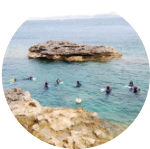Sport research: parity is making headway
By Albrecht Sonntag, Member of the Scientific Committee, Think tank Sport et Citoyenneté

Since 2005, the Sport&EU academic network has been working to make sport research an inclusive and non-discriminatory environment for its members. However, the annual conference, warmly welcomed at the end of June on the ESSCA École de Management campus in Anjou, raised the question of parity for Albrecht Sonntag, a researcher and member of our scientific committee.
How would you assess the development of inclusion in sports research over the last ten years?
 Like sport as a whole, sport research in the social sciences has long been a male bastion. And Sport&EU was no exception: the association was founded in 2005 by a group of friends … including just one woman. In 2024, not only was there no single-sex panel at the conference, but the balance between speakers achieved perfect parity. What’s more, this happened spontaneously, without anyone really looking for it. Of course, this parity is partly due to the presence of three female keynote speakers, but Dikaia Chatziefstathiou, Silvija Mitevska and Snežana Samardžić-Marković were invited not to fill imaginary quotas, but for their ability to answer specific questions and enrich the quality of the event with their knowledge, experience and charisma. But the greatest compliment we can pay this academic community is to have been chosen by young researchers to present the first research paper of their careers. Not without a certain amount of stage fright, but confident that they would find a non-condescending environment ready to welcome new faces full of new ideas. And while we’re at it, we can also congratulate Sport&EU on having succeeded in setting up a new academic journal, the Sports Law, Policy & Diplomacy Journal, two years ago, with an editorial board of 18 members, including 10 women.
Like sport as a whole, sport research in the social sciences has long been a male bastion. And Sport&EU was no exception: the association was founded in 2005 by a group of friends … including just one woman. In 2024, not only was there no single-sex panel at the conference, but the balance between speakers achieved perfect parity. What’s more, this happened spontaneously, without anyone really looking for it. Of course, this parity is partly due to the presence of three female keynote speakers, but Dikaia Chatziefstathiou, Silvija Mitevska and Snežana Samardžić-Marković were invited not to fill imaginary quotas, but for their ability to answer specific questions and enrich the quality of the event with their knowledge, experience and charisma. But the greatest compliment we can pay this academic community is to have been chosen by young researchers to present the first research paper of their careers. Not without a certain amount of stage fright, but confident that they would find a non-condescending environment ready to welcome new faces full of new ideas. And while we’re at it, we can also congratulate Sport&EU on having succeeded in setting up a new academic journal, the Sports Law, Policy & Diplomacy Journal, two years ago, with an editorial board of 18 members, including 10 women.
Do you think this progress is an encouraging sign for the future?
This snapshot of a particularly successful conference should not obscure the fact that the road is sometimes more difficult than it seems. While I have tried to be proactive in favour of the inclusion of women’s voices in football research – by managing, for example, to set up a consortium of 18 researchers for the European FREE project in 2012, including 8 women (3 of whom were PhD students) – I have had my share of setbacks.

In 2019, when it came to putting together the programme for a research seminar at Sciences Po aimed at taking stock of the last thirty years of research on football, I asked for two female colleagues. Both declined for scheduling reasons, and I ended up with five male speakers. More recently, during the preparation of the ‘Euro 2024 Guide’ project (which this newsletter mentioned a few weeks ago), my colleague Stephan Klemm and I drew up a magnificent shortlist of equal numbers of authors to write the ten portraits of the German cities hosting the competition. We were convinced we could do it. Then, despite enthusiastic responses to the project itself, we received one withdrawal after another, ending up with an overwhelmingly male cast. Whatever the cause, the result was a failure. We wanted to make a mark, but we ended up trapped in old habits.
What solutions do you think need to be put in place to continue to combat the lack of parity?
Clearly, good intentions are not enough. To achieve natural parity, we need to create a virtuous circle that makes everyone want to seize every opportunity to take a step forward. And we need to insist. Continue to refuse to take part in all-male round tables. Suggest the names of female colleagues to event organisers. Involve women on the executive committees of academic associations and on editorial boards. In the meantime, we would like to offer our sincere congratulations to Borja Garcia and the entire Sport&EU management team for having succeeded in creating an exemplary inclusive environment. Talking about good practice also advances the cause.
This article is published as part of the ‘weekly Sport and Society’ format. Every Friday, subscribe to our newsletter to receive the next article in your inbox!
Read the previous article of the week :
 «Diving to (re)discover the marine ecosystem with OSES.»
«Diving to (re)discover the marine ecosystem with OSES.»
by Julie Mongard, Communications Officer at Think Tank Sport et Citoyenneté










 MEMBERSHIP
MEMBERSHIP CONTACT
CONTACT FACEBOOK
FACEBOOK